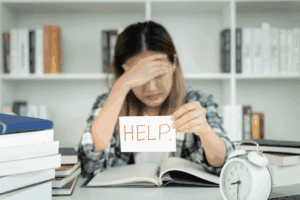Some Tips to Help Manage Anxiety about Coronavirus
Fear about the coronavirus has absorbed the world, and we understand that the outbreak of the coronavirus disease may be stressful for people. Fear and anxiety about a condition can be overwhelming and cause strong emotions in people of all ages. Coping with your stress and anxiety during this time is essential to your overall health, and helping others cope with their stress can also strengthen your community.
Coronavirus is a world health issue that is being taken very seriously by public health authorities everywhere but does not let your worry about this virus control your life or your ability to function. There are many simple and effective ways to manage your fears and anxiety about the coronavirus during this time. Our Chief Medical Officer, Dr. Nancy Donachie, recommends a few things during this time to help improve your overall emotions and physical well-being.
1. Make sure you connect with the correct facts but don’t overdo them.
The first thing you can do is to find a trusted source of information regarding the Coronavirus and just follow that. Be careful about searching the web for information about the Coronavirus. The Center for Disease Control and Prevention has a great website with all the information you need to understand better what is happening. We all want to keep up to date with relevant information, but continuing to read the latest updates can become compulsive and help to feed the anxiety. Try to limit your reading or watching the news to just one time a day. If you are worried about missing something important, you can also speak to family and friends to update you should important news be released.
2. Stay with your current treatment.
If you have a preexisting mental health condition, please continue with your treatment plan and be aware of new or worsening symptoms. Please work with your provider to do a telehealth visit if you need it. Many providers are now offering those services due to the times. If you have questions about your health, call your doctor’s office for advice.
3. Do some at-home exercises.
For many people, staying at home for the next several weeks will be challenging. Gyms and workout facilities will be closed, but you should still get exercise if you are physically able. Exercise has long been established as a great option to combat anxiety. Training and other physical activities help produce endorphins in the brain, which can help decrease tension levels, elevate mood, and improve a sense of well-being. Don’t try to overdo it; most experts suggest that even a 10-minute walk outside can be beneficial. Make it your goal to try and get in a 10-20 minute walk each day while at home during this time. You could create a long-term healthy habit in the process!
4. Breathing and grounding exercises.
Feeling out of breath from anxiety can be normal. However, when you find yourself really anxious about the coronavirus during this time, try a few of these different breathing exercises to help keep you grounded.
- Abdomen breathing which is breathing from your diaphragm. Sit in a comfortable chair and place one hand on your heart and one hand under your rib cage. Breathe through your nose and notice how your stomach and chest move during this time. Try doing this for 10 minutes.
- Resonant breathing is when you lie down and close your eyes, gently breathing through your nose with your mouth closed for 6 seconds. Don’t try to breathe in too much, then exhale for 6 seconds, but make sure not to force it. This is another 10-minute exercise.
5. Seek additional online or virtual help and support.
There are many online options that you can look into. Very Well Mind has their top picks depending on what you are looking for. Their top picks include options for chat sessions, video conferencing options with Talkspace, Support for Teens, and quick consultations. Their site also includes the pros and cons of each option. If you are looking for opportunities to speak to someone from your home, you can check out their site.
6. Keep up with your social network.
This last piece of advice is essential for all of us. It is important to realize that social distancing does not have to mean social isolation, especially with modern technologies available to many of us. Connecting with our friends and loved ones, whether by high-tech means or through simple phone calls, can help us maintain ties during stressful days ahead and will give us the strength to weather this difficult passage.
Learning to open up to people can be challenging, especially when you are used to keeping to yourself, but it is possible and very well worth it in the end.
While we deal with this uncertainty of the coronavirus, it is essential to work on maintaining our control over our health anxiety. We hope these coronavirus anxiety tips help you. Please let us know what you think about the recommendations in the comments.
See If TMS Therapy Is Right For You
Schedule Your Consultation Today


